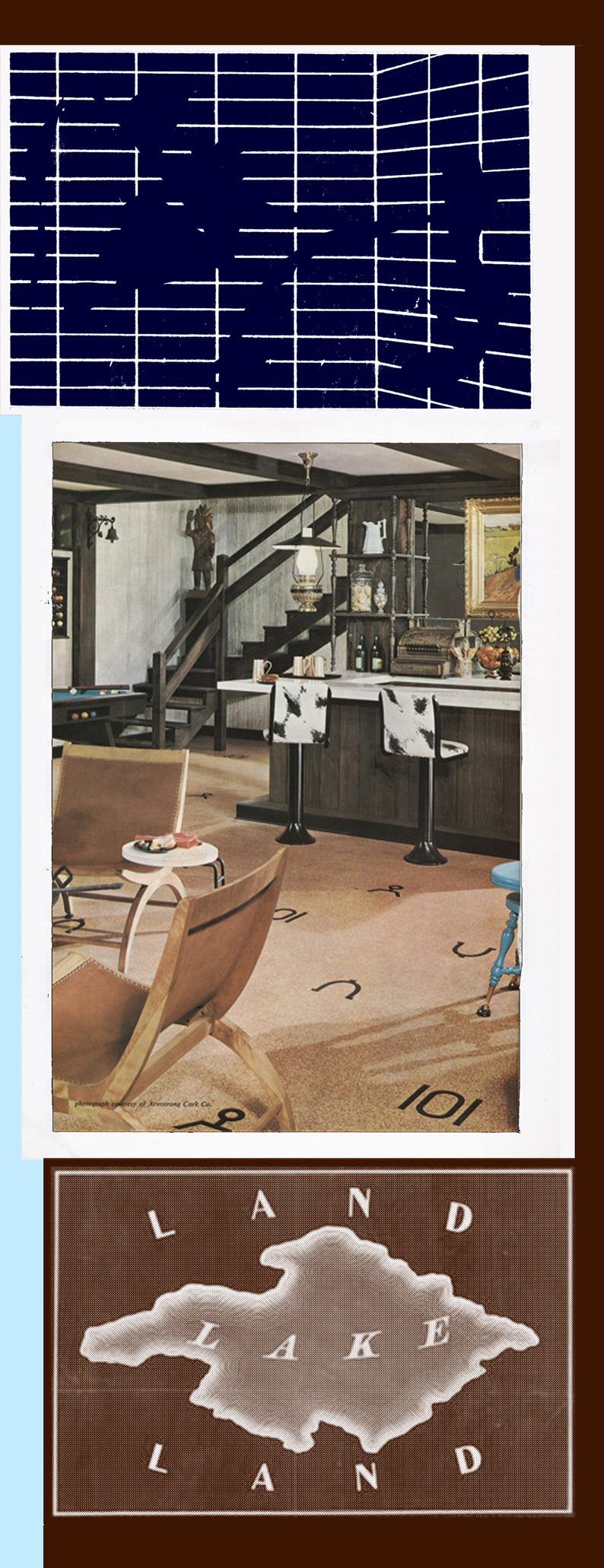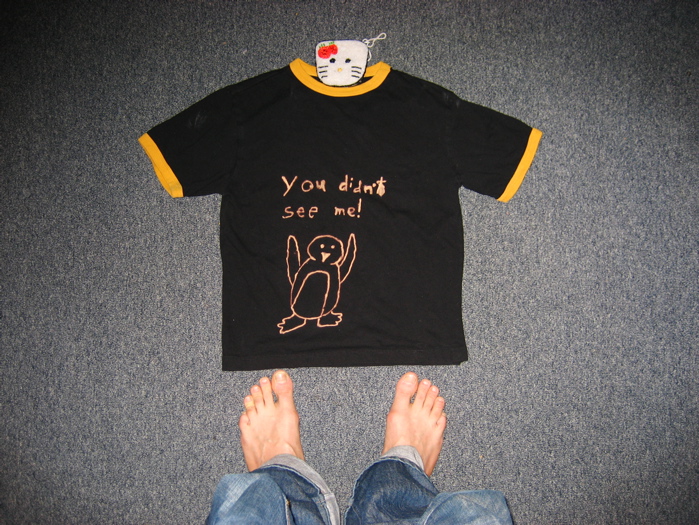Stefan Pente
I'm a performance maker, visual artist and art education facilitator born 1964 in zurich, switzerland, based in berlin since 1994. with my performative and flat or sculptural art work I try to create terrains of defamiliarization. seeing things as they appear and not as what we know them to be is a first step in the process of clearing and confusing of my own gaze and imagination. I understand this process as a daily training to purge myself from preconceptions.
.-.-.-.-.-.-.-.-.-.-.-.-.-.-.-.-.-.-.-.-.-.-.-.-.-.-.-.-.-.-.-.-.-.-.
and this is an excerpt from my ongoing -curricula vitae- project
.-.-.-.-.-.-.-.-.-.-.-.-.-.-.-.-.-.-.-.-.-.-.-.-.-.--.-.-.-.--.-.-.-.
in 1986 s had a brief encounter with a person not significantly older than him self. they instantly clicked, took long walks together and sat at the edge of the woods talking during the only three days she was in the region. they spoke german with each other and for those of the readers who are not familiar with german, it is one of those languages where—different than in english—every single subject and object is gendered. love, death, sculpture, bottle, tree, weather conditions and even shit are masculine or feminine and some things like a child for example, a car, the end, a room, consciousness and the eye are neuter. spectators, refugees, authors, consumers, players, artists, losers or students and other unspecified groups of people are spoken of as groups of only males. over the time the two spent together, all these groups of only males turned into groups of only females through her consistent and solely gendering of everyone feminine in her speaking. The male omnipresence in their native language started to crumble through that same language spoken consciously and intentionally different by her. s remembers the moment he realized what she was doing and how startling and what a thrill it was to witness her changing his imagination and perception of past and future worlds through her use of language. He forgot her name but he remembers her as one of his best teachers.
thomas says he remembers. until he was five years old, no one in his family had realized that his vision was really weak and that he could hardly see. it made it difficult for him to connect. he couldn’t recognize things or people unless they were no further away from him then his outstretched arms. even his feet materialized only when he squatted down to put them into the shoes, which also only took on shape the moment he touched them. He was convinced that all things where more or less made from the same soft matter assembled in various but very similarly vague, contoured and colored clouds. all the ingredients for all and everything nascent were always present everywhere. a thing decided what to be, hard or soft, vivacious or inanimate, only a moment before he could touch it. sister, mother, refrigerator, cherry tree. everything had the potential to be anything. all arose from a pool of wafting matter. all vanished back into that same pool. he does remember but can only think and talk about it in the language he developed subsequent to the experience. even if he takes off his thick glasses to visually see the things more or less the way he saw them earlier, he can never again experience the world the way he did. what he describes in retrospect—due to a lack of another language—as a blurry or unclear vision, mist or fog, he remembers to have simply been the way things were. things were not blurry or obscure. and by saying that, he finds himself curiously handicapped by the fact that he can’t describe or even think about his former perception without comparing it to the perception of the seeing person he is now. he also has to acknowledge that he regularly forgets to mention that the world he lived in not only looked different but subsequently was a fundamentally other place. and whilst trying to find words to specify other place he again has only comparisons to offer. “how do I think and speak today about an experience I’ve made before I had the language I use to speak about it today?” this is why he actually doesn’t think that he remembers anything from that time at all, he says.
there was a mummified body of a south asian male in a glass box. melanie witnessed a small boy looking at this corpse. that was in london 1994. melanie stood with her back against a thick white pillar close to the head end of the showcase. the mummy was naked, resting on its side in a sort of foetus position on a low pedestal approximately 40 cm elevated from the floor. the boy was about ten years of age. he wore a dark blue school uniform with shorts and white knee socks. he squatted on his haunches to look at what was displayed. he observed the object in front of him with great curiosity, bending further down and forward, almost touching the glass with his forehead. the shiny bronze skin of the mummy was still intact in most places. from where she stood melanie could see the face of the mummy. the hair on the head as well as the thin moustache were orange. the eyelashes long. from where she stood she could see the boy through two layers of glass. she only saw a tuft of his light blond hair behind the back of the mummy as he moved slowly around the box, remaining in a squatting position. he came around the mummy’s shoulders, around the back of its head and finally crouched in front of its face. from where melanie stood she could see the boy’s back now. it must have been only now that the boy realized what he was looking at. his head sprang up with a little jolt and his slender back hardened and stretched in one jerk. falling backwards onto his hands and kicking once or twice with both of his feet he leaped away from the showcase. he came back onto his feet, staggering, supporting himself with one of his hands against the glass box. his head sunk a little bit and a tiny shiver went through his lower back before he vomited onto the glass. it was a small amount of yellowish spew. a teacher came and led him away. for a moment melanie could see his watery eyes in a haze of disbelief. the museum lights reflected as white circles on the greenish glass surrounding the mummy and made the small pool of vomit sparkle.
fall 1980, I took what emerged to be the last walk with my grand-uncle heinrich before he died. he was a very soft and generous man in his nineties. what had fascinated me since she was a small child was the fact that his frail body constantly shook. a grenade had detonated right next to him in the first world war, killing two of his comrades and leaving him spiked with shrapnel and with a so-called agitated paralysis for the rest of his life. my granduncle couldn’t hold a cup or glass or spoon without spilling half of what was in it on the way to his mouth. the few times I witnessed him falling asleep on the sofa in the small kitchen of the one-room apartment he shared with wonderful grandaunt anneliese, his sleeping body kept shaking. sometimes it shook so hard that the sofa started to beat against the wall and one of anneliese had to squeeze a few folded napkins between sofa and wall to stop the banging. every fibre in his body was twitching since 1916. now, 1980, heinrich and I are taking a walk along the edge of a park or forest outside the city of dortmund, exchanging the wisdom of a sixteen and that of a ninety-year-old. and while we are talking, I see heinrich’s jittery shadow in the flat afternoon light passing over a multicolored, patchy background of autumn leaves covering a dirt road. and eventually I am able to see him as a nervous swarm of cells, every single one of them individually constantly jumping for their lives, still trying to escape a grenade. jumping sort of backwards towards the grenade in the past. caught in a loop never able to break as long as they remember.
september 2006. z in her room writes into her diary what she kept from today’s reading in kathy acker's “pussy, king of the pirates”: "the decrease of the separation between private and public property will directly be related to a movement away from, and then to the passing away of, the memory of patriarchy."
https://stefan-pente.org/


![Image for event cancelled: [touched, pushed and moved]](/fileadmin/user_upload/files/eventpictures/stefan_pente_performance.jpg)


